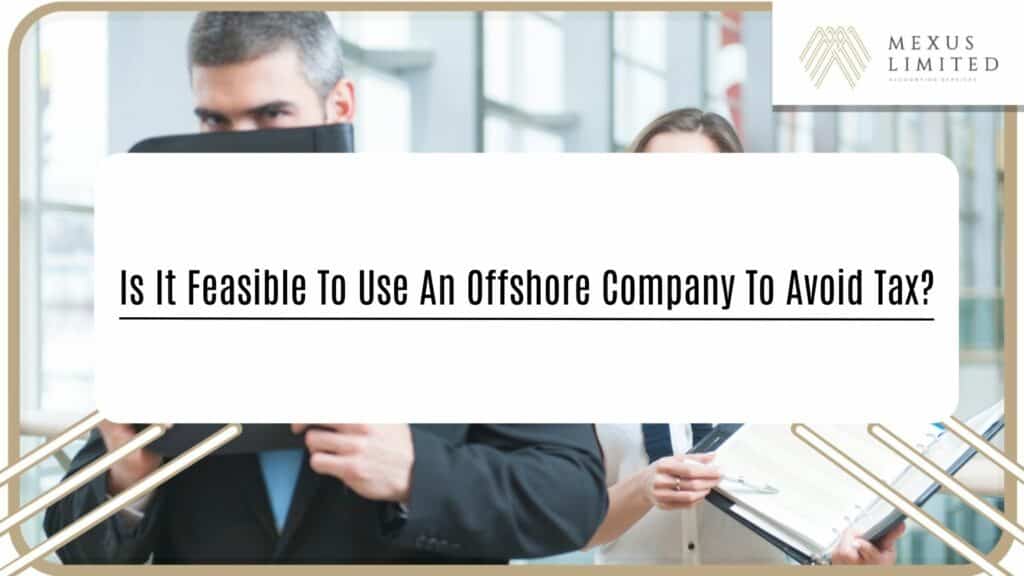Is it feasible to use an offshore company to avoid tax?

The advantages and disadvantages of setting up an offshore company are not as numerous as they used to be in the past. Taxpayers need to consider the advantages and disadvantages.
Advantages of offshore companies: Taxpayers have always used offshore companies to transfer Hong Kong’s assessable profits to offshore companies to avoid paying profits tax, but this arrangement for offshore company tax returns is no longer feasible.
In fact, the Inland Revenue Department of Hong Kong has noticed in the early years that taxpayers have used offshore companies to avoid tax/employee companies to avoid tax.
The Inland Revenue Department will regularly review the Inland Revenue Ordinance to deal with this situation. Therefore, the Inland Revenue Department can cite the relevant regulations to include the profits of tax avoidance transactions in assessable profits.
Offshore company tax avoidance
The Inland Revenue Department has a special team to conduct random checks on offshore companies suspected of taxpayers taking advantage of offshore company tax avoidance / one-person company tax avoidance cases, which makes it difficult to use the offshore company tax deduction scheme at present.
Furthermore, in recent years, offshore countries have implemented new tax laws under the pressure of the European Union, requiring offshore companies to prove that they are not shell companies, otherwise, they will have to pay taxes, making these offshore companies known as tax havens in name only.
In fact, more and more countries have enacted anti-tax avoidance regulations
There are also transfer agreements between countries to prevent offshore companies from transferring profits from high-tax countries to low-tax countries, making tax evasion schemes more difficult to implement.
On the other hand, some offshore countries have economic substance requirements for offshore companies, and the offshore company needs to prove that:
Hong Kong Company vs Offshore Company
• Have a local office
• have sufficient turnover
• have paid a sufficient amount of expenses in the country
• conduct business activities
• A certain number of employees are employed in the country
If the local exchange of tax information with the offshore company or the parent company or ultimate controller of the offshore company finds that the offshore company has not fulfilled the real economic requirements at all, the offshore company may be required to forcibly close the company.
The economic substance requirements are to improve the quality of corporate governance of offshore companies, corporate transparency, protect the interests of minority shareholders and society, combat money laundering activities, etc.…
Although it is no longer feasible to use an offshore company to avoid tax, because it does not disclose the identity of directors and shareholders, this uniqueness of confidentiality still makes offshore companies have certain commercial value.
The above information is for reference only
We welcome your tax inquiries

